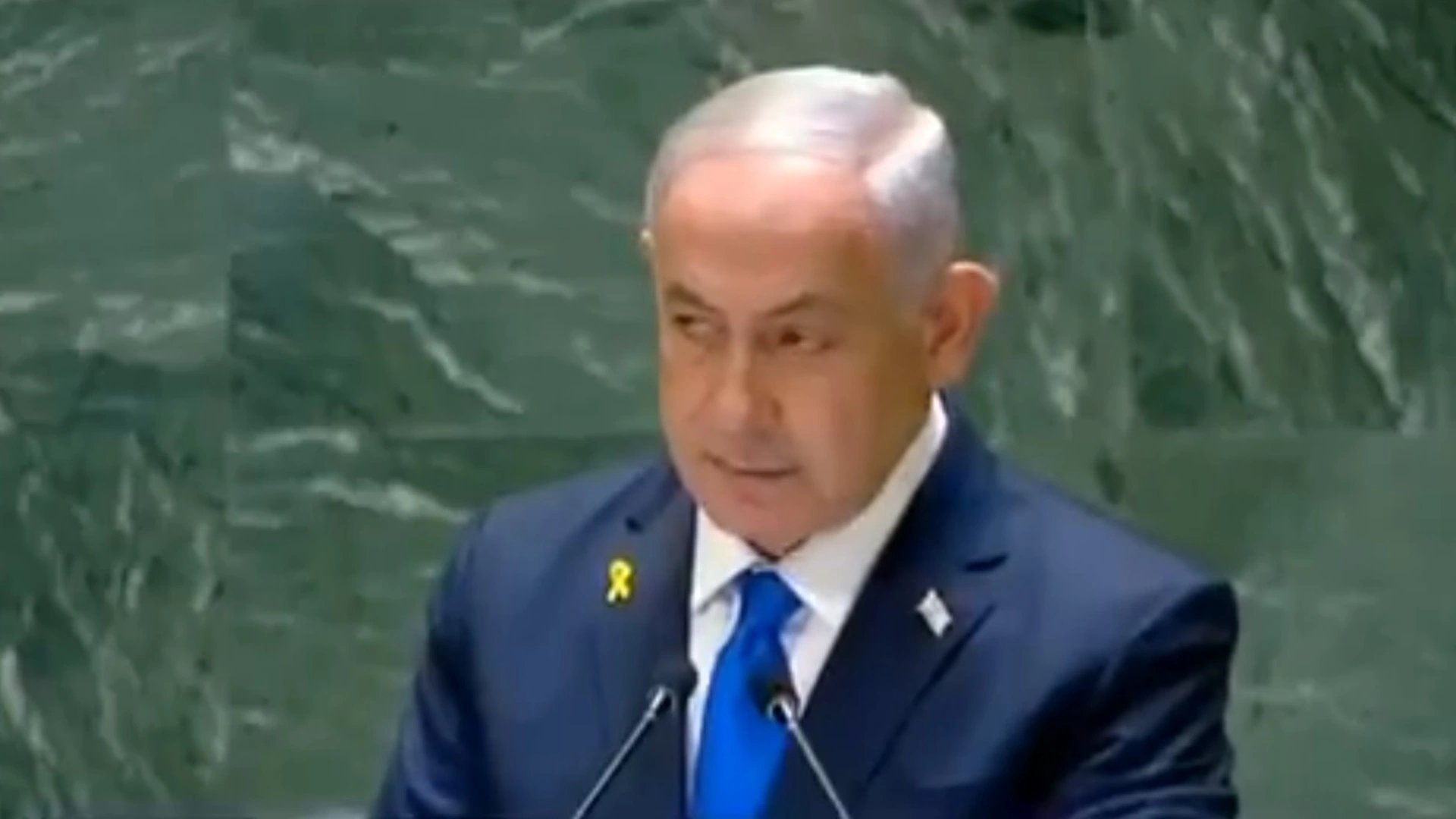
Israeli Prime Minister Benjamin Netanyahu‘s speech at the United Nations General Assembly on Friday sparked sharp reactions as he fiercely condemned the UN and defended Israel’s military actions against Hamas and Hezbollah. Netanyahu described the UN as a “hypocrite” and an “antisemitic swamp” for disproportionately targeting Israel, while asserting that Israel has the right to defend itself from enemies seeking its annihilation.
Netanyahu’s rhetoric was strong, stating that Hamas “must go” and declaring that Israel will not participate in rebuilding Gaza until victory is fully secured. He insisted that Israel would not back down in its fight against what he termed “savage enemies” who are not only intent on destroying Israel but Western civilization as a whole. His address also touched on the ongoing conflict with Hezbollah, emphasizing that “there is no place in Iran” that Israel cannot reach.
Netanyahu linked the conflict to a broader defense of shared values, stating that Israel’s fight is against forces wanting to return the world to a “dark age of tyranny and terror.” Highlighting the human cost of the war, Netanyahu called attention to the destruction wrought by terrorist attacks on Israeli civilians, comparing the situation to hypothetical attacks on American cities like El Paso and San Diego. He used this analogy to emphasize that Israel, like any sovereign nation, would not tolerate such threats to its citizens’ safety.
Netanyahu’s harshest criticism was reserved for the UN, accusing it of applying a double standard by disproportionately focusing on Israel during wartime. He claimed the UN’s actions represented a “moral stain” and went so far as to call it an “antisemitic swamp.” His frustration was evident as he addressed international delegates, many of whom, including the Iranian delegation, walked out during his speech.
Despite the combative tone, Netanyahu did outline a potential pathway for peace, stating that Israel would be willing to stop the war if Hamas surrendered, laid down its arms, and released hostages. However, he warned that without such actions, Israel would fight until it achieved “total victory,” leaving no room for negotiation or compromise.
Netanyahu also claimed that Israel had successfully destroyed 90% of Hamas’ rockets and neutralized half of its forces. He positioned Israel as a strong and resilient nation, unwilling to be seen as “lambs led to the slaughter.” Instead, he celebrated the bravery of Israeli soldiers and asserted that Israel is “winning” in the conflict, reaffirming his country’s commitment to self-defense and resilience.
The speech comes amid increasing international scrutiny of Israel’s military operations, particularly its heavy airstrikes in Gaza, which have resulted in significant civilian casualties. Netanyahu’s address was a clear message to both Israel’s allies and adversaries that the country would not yield to external pressure or threats.
Netanyahu’s remarks echoed a broader frustration within Israel over what they perceive as the international community’s misunderstanding or misrepresentation of the complexities of the Israeli-Palestinian conflict. While Israel continues to face criticism for its military tactics, Netanyahu’s speech made it clear that the nation views its actions as a necessary defense against existential threats.
The Israeli leader’s pointed critique of the UN and his firm stance on the continuation of military operations until “total victory” underscores the deepening rift between Israel and segments of the international community. As the conflict drags on, Netanyahu’s speech has amplified the global debate about the role of international organizations like the UN in mediating and addressing the Israeli-Palestinian conflict.















